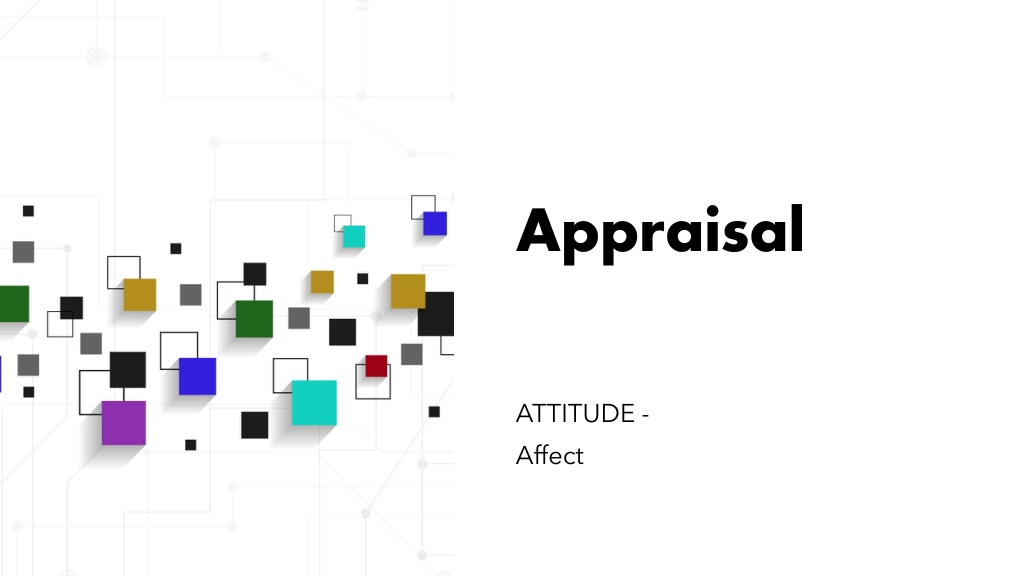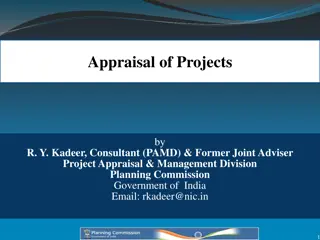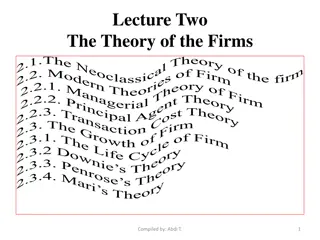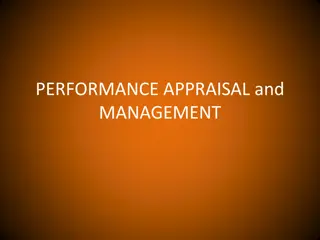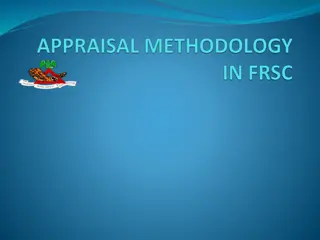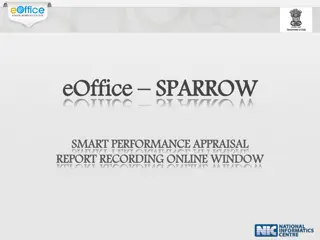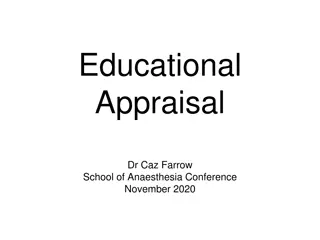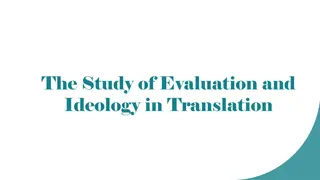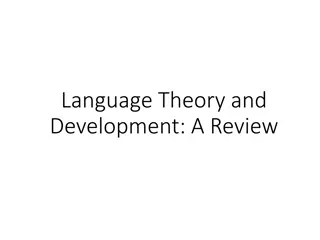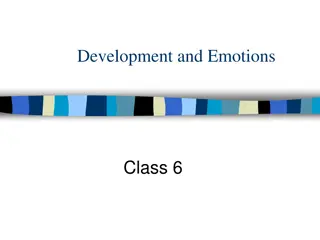Appraisal Theory & Language of Affect
Dive into the world of appraisal theory and the language of affect to enhance your understanding of how personal views are expressed. Discover the nuances of attitude, graduation, and engagement in language, and explore the language used to express feelings, positive and negative emotions, and more in academic writing. Uncover how affect can be indicated through verbs, adverbs, adjectives, and nominalizations, and explore examples of affect in academic writing.
Download Presentation

Please find below an Image/Link to download the presentation.
The content on the website is provided AS IS for your information and personal use only. It may not be sold, licensed, or shared on other websites without obtaining consent from the author. Download presentation by click this link. If you encounter any issues during the download, it is possible that the publisher has removed the file from their server.
E N D
Presentation Transcript
Appraisal ATTITUDE - Affect
Appraisal theory + allows us to understand more complex ways in which we express our personal views and react to the views of others (White, 2013) + has three resources in language: attitude, graduation and engagement + gives us the language to consider and answer questions about the intention of the writer/speaker
Affect + language of Affect is used to express feelings (Peel, 2014) + is concerned with positive and negative feelings such as un/happiness, in/security, dis/satisfaction etc (HK Polyu, nd) + is rare in academic writing as it is often with support or evidence (HK Polyu, nd), but + may be found in eg ethnographic studies or other case studies (HK Polyu, nd)
Affect may be indicated through: + verbs of emotion (eg to love/hate, to frighten/to reassure) - Your offer pleases me. + adverbs (eg happily/sadly, to interest/to bore, to enrage/to placate) - Sadly the government has decided to abandon its commitment to the comprehensive school system. + adjective of emotion (eg worried/confident, keen/uninterested, angry/pleased) - She s proud of her achievements. + through nominalisation (eg joy/despair, confidence/insecurity) - His fear was obvious to all.
Affect in academic writing - examples ... as functional discourse can be achieved without the interlocutors being secure in their use of the language. Item: secure Appraised: interlocutors positive affect Burns (2001) makes the point that students sense of security evaporates when confronted by authentic discourse exchanges. Item: evaporates Appraised: students negative affect HK Polyu, nd
References Hong Kong Polytechnic University, nd, Attitude , viewed 27/7/21, <www.engl.polyu.edu.hk/academic_writing/attitude.html> McGuire R, 2008, Grammar at the chalkface: an introduction to the grammar of Appraisal and its application in a Year 9 classroom mETAphor, Issue 1, 2008 pp 42-57 Peel R, 2014, Affect and Judgement (evaluative language) , viewed 27/7/21, <Affect and Judgement (evaluative language) by Rosie Peel on Prezi Next> White PRR, 2013, Systemic Functional Grammar: Appraisal , An Introduction to Appraisal, ASLA White PRR, 2015, 1. Affect , viewed 2/8/21, <https://www.grmmatics.com/appraisal/appraisalguide/unframed/stage1-attitude-affect.htm>
